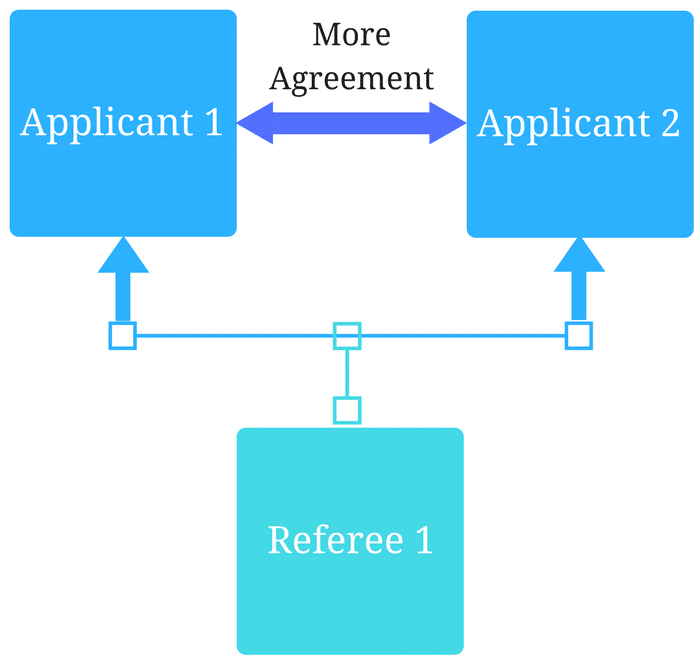The Impact of ChatGPT on Higher Education Admissions

April 25, 2024
In recent years, the world of higher education admissions has undergone a significant transformation, influenced by the 2022 emergence of generative AI tools like ChatGPT and Bard.
This week on the Holistic Success Show, we welcome Dr. Nicolas Roulin, Professor of Industrial and Organizational Psychology at Saint Mary’s University in Halifax, Nova Scotia, to speak about the impact these large language models are having on the higher education admissions process, exploring the potential AI holds for creating a more efficient, accessible, and fair process.
What sparked the rise of AI in admissions?
The integration of AI into the admissions process came about in response to the need for greater efficiency and widening pathways in education. With the advent of AI tools, the admissions landscape has seen a shift towards automating tedious tasks, such as reviewing thousands of applications and providing personalized feedback at scale. This has significantly alleviated the administrative burden on admissions committees.
More importantly, AI has begun to democratize the admissions process by offering equal-opportunity resources to all applicants, irrespective of their background. The initial intrigue and adoption of AI in admissions were driven by its promise to level the playing field, making the dream of higher education more attainable for a broader audience.
How is AI currently shaping admissions?
AI is changing how colleges and universities pick and evaluate their future students. It’s making things more fair by providing high-quality study materials and advice to more people, especially helpful for those from less represented backgrounds who might not have as many resources.
The admissions process is also becoming more efficient and consistent thanks to AI. AI can automate test creation and applicant assessment, making things quicker and potentially fairer.
What are the ethical considerations of AI in admissions?
Bringing AI into the admissions process opens up a mix of ethical questions that need careful consideration. On the positive side, AI has the potential to make admissions more open, efficient, and fair, offering every applicant the resources they need to shine. But, it could also be used for the wrong reasons—either to cheat the system or, unintentionally and unduly prioritize some applicants above others. That’s why it’s so important to ensure the use of good data, algorithms, and processes. If not carefully designed and responsibly used, AI in admissions could replicate or even worsen existing inequalities in your admissions pool.
Acknowledging these possibilities means that AI used for admissions must be built on a strong ethical foundation. This involves setting up clear, transparent rules and ethical guidelines that do two things: first, they make sure AI tools are built and used in ways that treat everyone fairly. Second, they define what is okay (and what is not) for applicants using AI, ensuring it’s a help, not a way to cheat the process. The aim here is to embrace AI’s benefits while keeping admissions honest and fair for everyone.
What challenges and opportunities lie ahead?
The future of AI in higher education admissions is both promising and fraught with challenges. The rapid pace of technological advancement offers opportunities for further innovation, making the admissions process even more personalized and efficient.
Yet, these advancements also bring the challenge of ensuring ethical use and fairness. The potential for AI to transform the admissions process into a more personalized and welcoming experience is immense. Still, it requires ongoing vigilance to ensure that technology enhances rather than undermines the integrity of the process.
How can academia and industry collaborate for the better?
The evolving role of AI in admissions presents a unique opportunity for collaboration between academia and industry. Such collaboration can leverage the strengths of both sectors to address the challenges posed by AI and to harness its potential for the benefit of all stakeholders.
Academia’s research and ethical insights, combined with industry’s technological expertise, can ensure AI tools are developed and applied in ways that are fair, transparent, and beneficial to all applicants.
This collaborative approach is essential for advancing the use of AI in a manner that respects ethical considerations and promotes fairness in higher education admissions.
Balancing innovation with integrity
As we reflect on the integration of AI into higher education admissions, it is clear this technology holds great promise for enhancing the admissions process.
However, there are also significant ethical considerations that require careful attention. Balancing the benefits of AI with the need to maintain fairness, authenticity, and transparency in the admissions process is crucial.
The future of AI in higher education admissions depends on our collective ability to navigate these challenges, fostering a collaborative environment between academia and industry to ensure AI serves as a force for positive change. By doing so, we can harness the power of AI to open doors to a brighter future for learners worldwide, ensuring that the evolution of AI in admissions continues to benefit students and educational institutions alike.
You can learn more about Acuity’s commitment to ethical AI and discover helpful resources, here.
Related Articles

How interviews could be misleading your admissions...
Most schools consider the interview an important portion of their admissions process, hence a considerable…
Reference letters in academic admissions: useful o...
Because of the lack of innovation, there are often few opportunities to examine current legacy…
